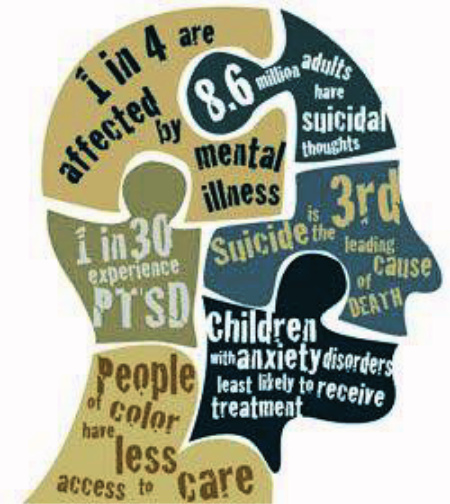Most of my teenage years were characterized by lethargic energy that only motivated me to take as many naps as possible. My mom always told me that taking as many naps as I did at my age was normal given the growth spurts I was going through. On the weekends, I would get out of bed at 3:00 PM, only to make coffee and go back to bed. I would periodically get up to walk in my backyard, but I would promptly head back to my room. I only ate once a day, and on rare occasions, I would eat a second time, sometime after midnight. I would use my phone, I would watch television, I would listen to music, but nothing gave me satisfaction. During the week, I would go to school, I was disengaged with all classes, and I would get home and head straight to bed for a three or
Going into summer before junior year, I looked forward to sleeping in, as I was so accustomed to doing. However, I came to the realization that I was depressed when, only after a week into summer, I woke up at 6:00 PM on Wednesday, only to fall asleep two hours later that same night. I was only awake for two hours before wanting to sleep again. This was the moment for me–it was the moment I realized that I was experiencing some sort of depression.
I began to research signs of depression on my own and found that I had most of the symptoms of depression: anxiety, apathy, general discontent, guilt, loss of interest or pleasure in activities, mood swings, sadness, loss of appetite, excess sleepiness, irritability, social isolation, lack of concentration, and slowness in activity. I knew that I did not like feeling the way I did, so I spoke with my parents, but that was perhaps one of the most unpleasant conversations I had with both.
I told my mom that I thought I was depressed, and her response was that I was “lazy, and had too much time to simmer in my own thoughts.” I told her that I was not lazy, that I needed something to give me energy, and she resolved that I take up exercise. She did not understand that I lacked the energy to take up exercise in the first place, and she dismissed our conversation by saying, as usual with, “You’re crazy, Robel.”
I then told my dad that I felt depressed, and he responded, “You are a man, and you are a Christian man, a son of God, and the Holy Spirit is in you causing you joy each day, so you cannot be depressed.” He must have forgotten that the Bible is riddled with people who suffered from depression: Hannah, King David, the Prophet Elijah.
Growing up experiencing any form of mental health difficulties in a Latino home is one of the most difficult things a person can go through. I experienced it myself, and I have encountered so many students who experience the same difficulties. I was fortunate enough to find a way out of depression by submerging myself in the world of literature. In the span of 5 years I devoted myself to reading and collecting as many books as I could. Reading helped ease my depression; it helped me see the world through multiple perspectives. That’s what I lacked in moments of depression, an outlook on life different than my own that gave me hope.
Latino parents (for the most part) do not believe in anxiety, depression, or other forms of mental health difficulties. According to the National Alliance on Mental Illness, “many Latinos do not seek treatment for fear of being labeled as “locos” (crazy) or as having a mental health condition because this may cause shame.” This is especially true in Machista homes where males (regardless of their gender identity) are expected to be “men” and deal with hardships by ignoring their feelings. My experience was affected by both my Latino culture and machismo, and I experienced an added layer of disregard–religion. According to a 2014 PEW research report, a majority of Latinos in the United States (over 95%) report being affiliated with the Christian religion. In my case, as in the case of millions of Latino teenagers growing up in religious, Machista, Latino homes, religion became another reason my parents did not acknowledge and offer help when I reached out to them. Religion caused my parents to ignore my need for mental health when I asked. Religion caused irreparable damage that I will not allow myself to see repeated in my own daughter.
If you are a religious person, I urge you to remain vigilant regarding your own religious beliefs, and do not let those get in the way of helping your family when they reach out regarding mental health. Mental health difficulties are not anti-religious. Mental health difficulties are not anti-men (whatever “men” might mean to you). Most importantly, mental health difficulties are not anti-Latino, so please look after your children, siblings, and even your parents when they seem to experience mental health difficulties because your support will mean the world to them.


Pingback: Dealing with Depression as a Latino Teen in a Deeply Religious Household - You Can Quit Now